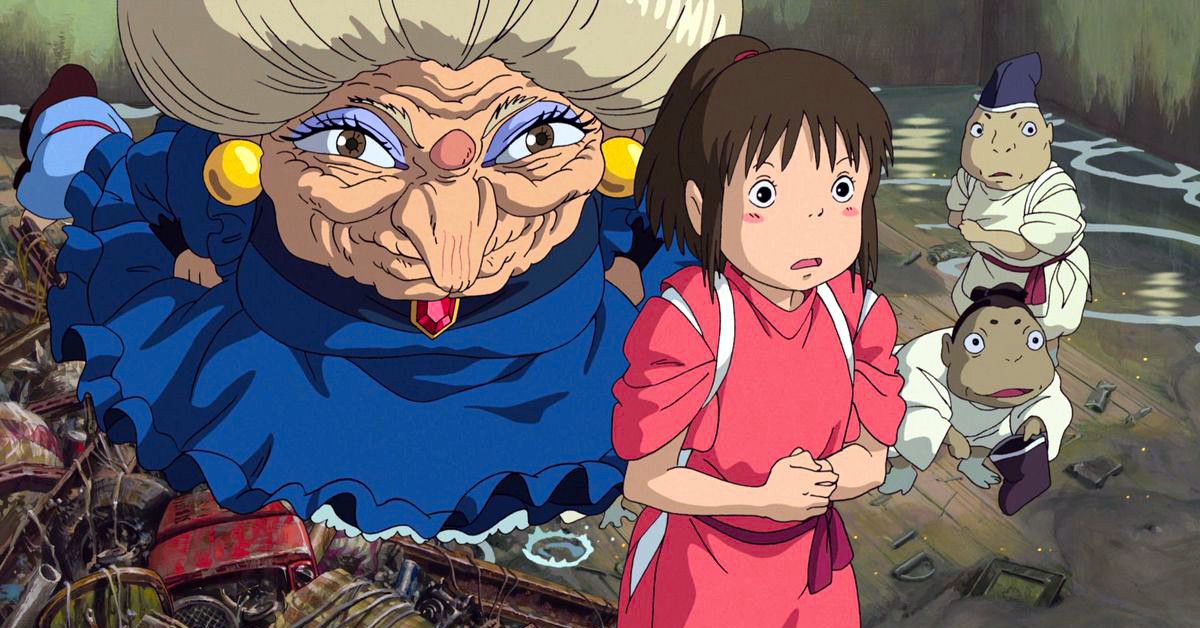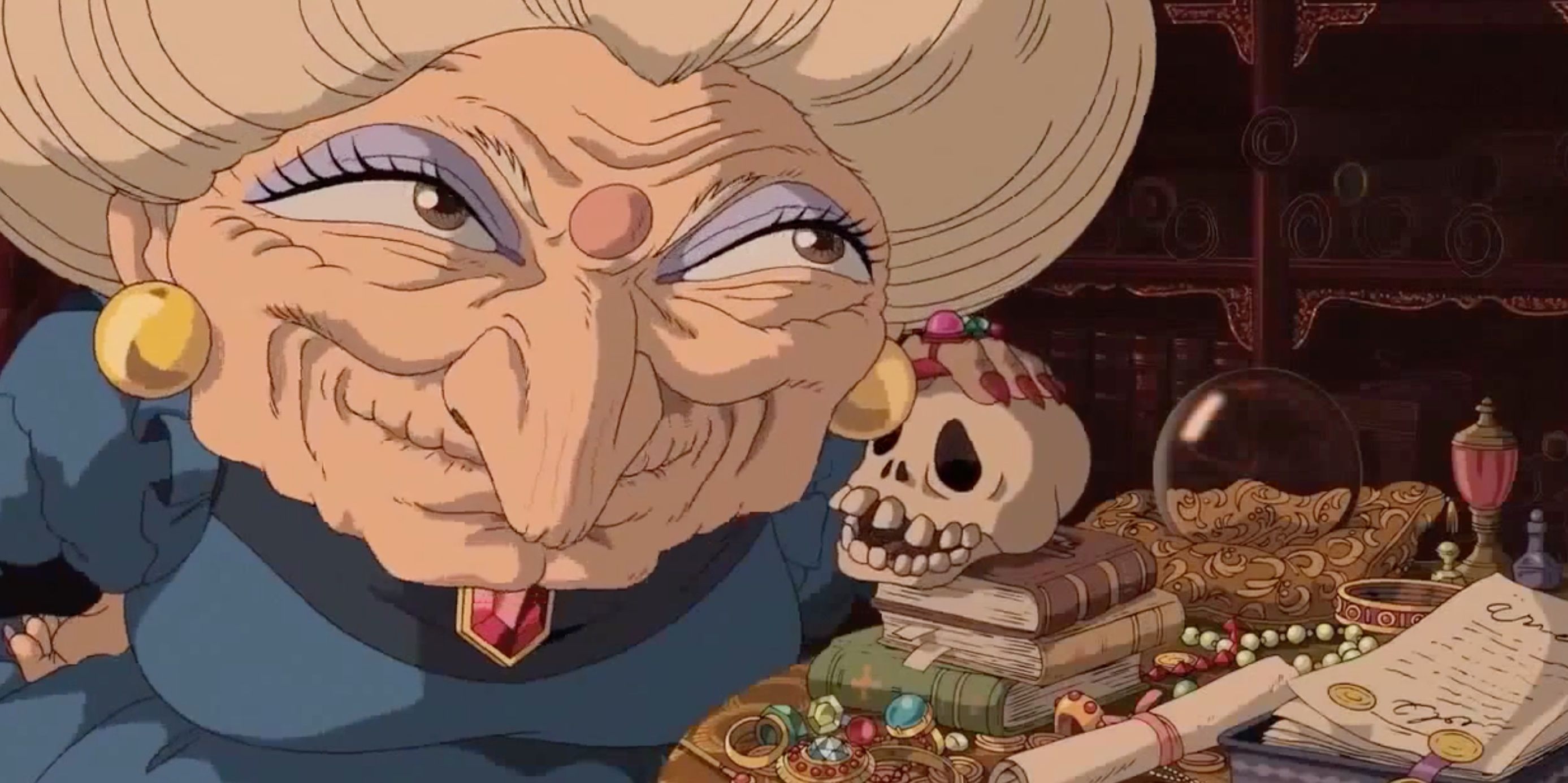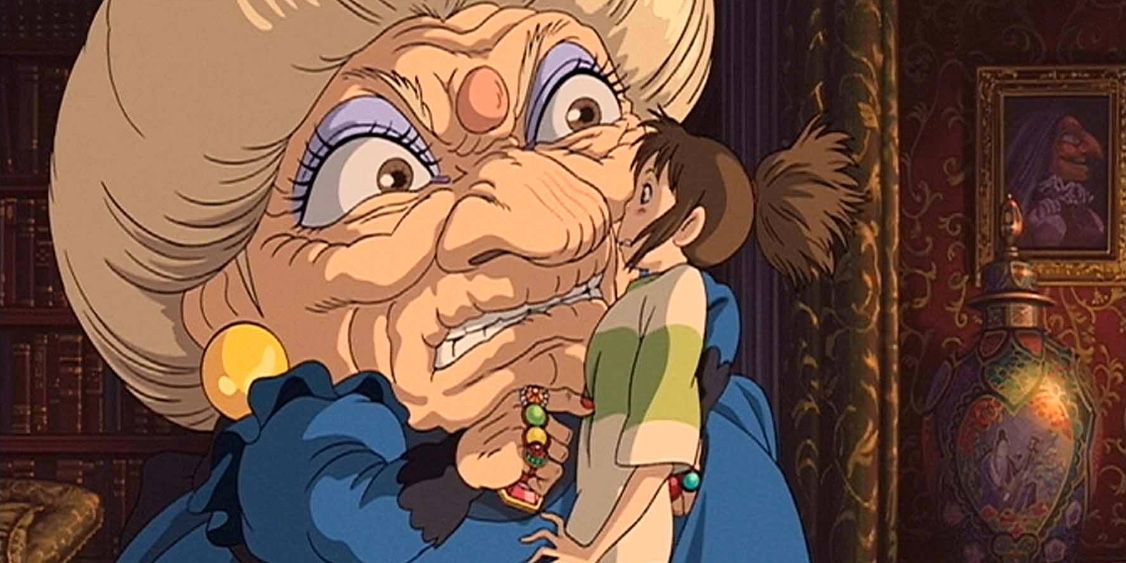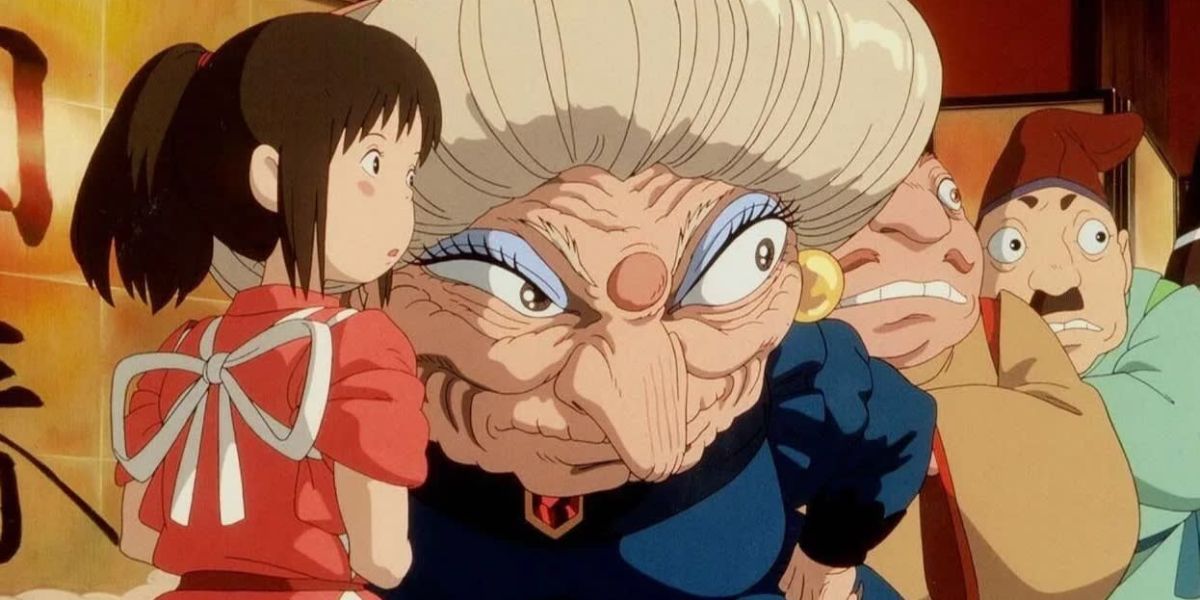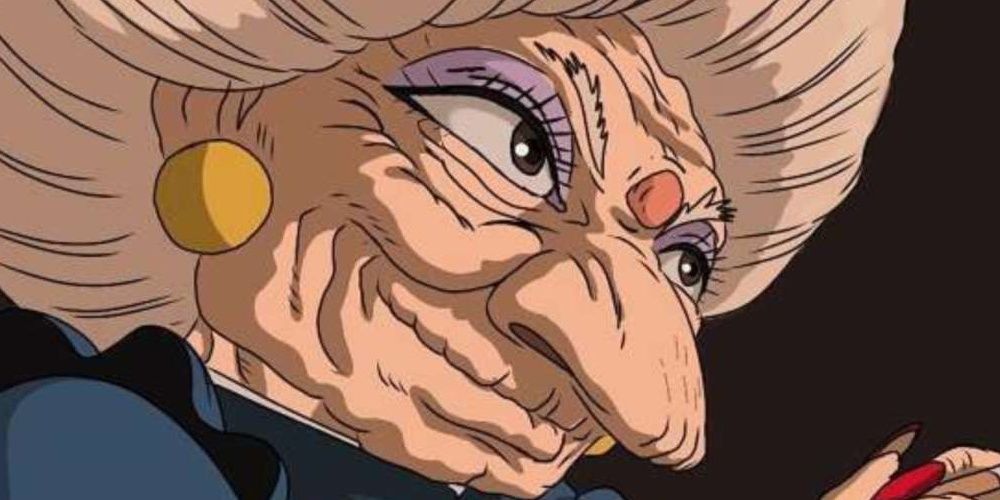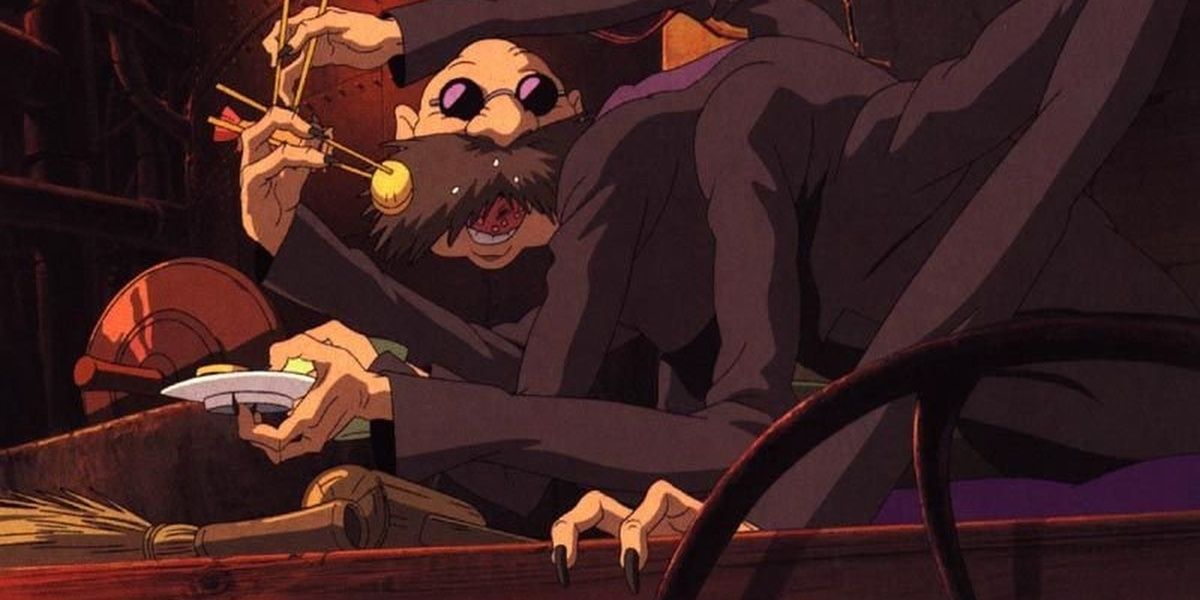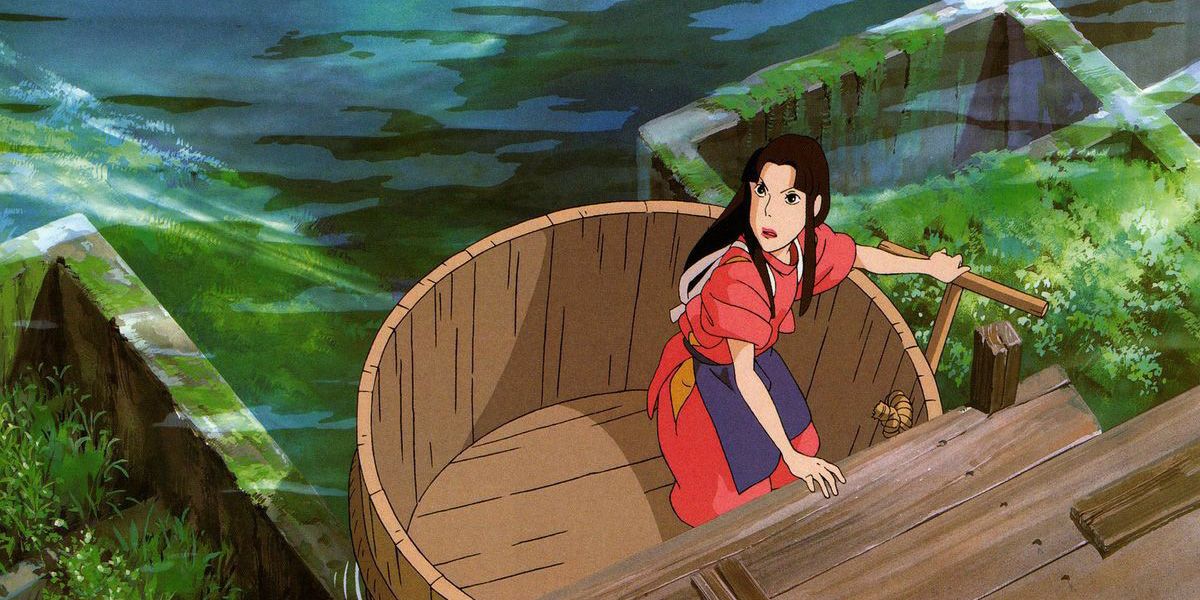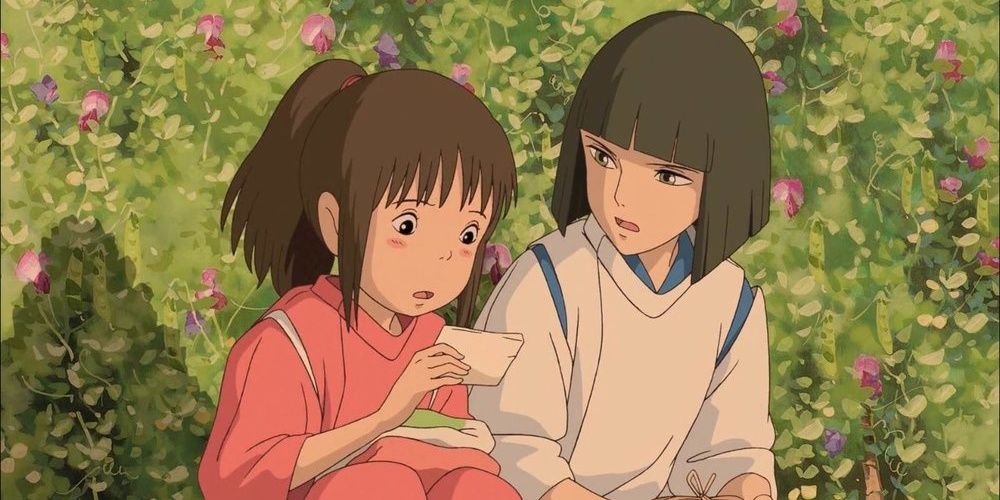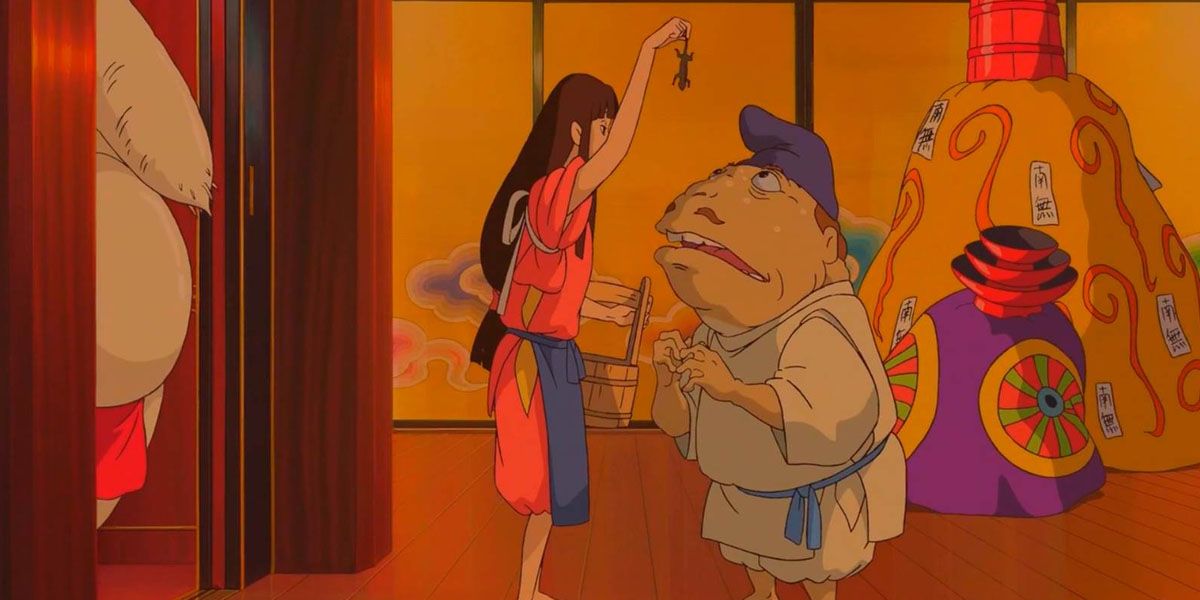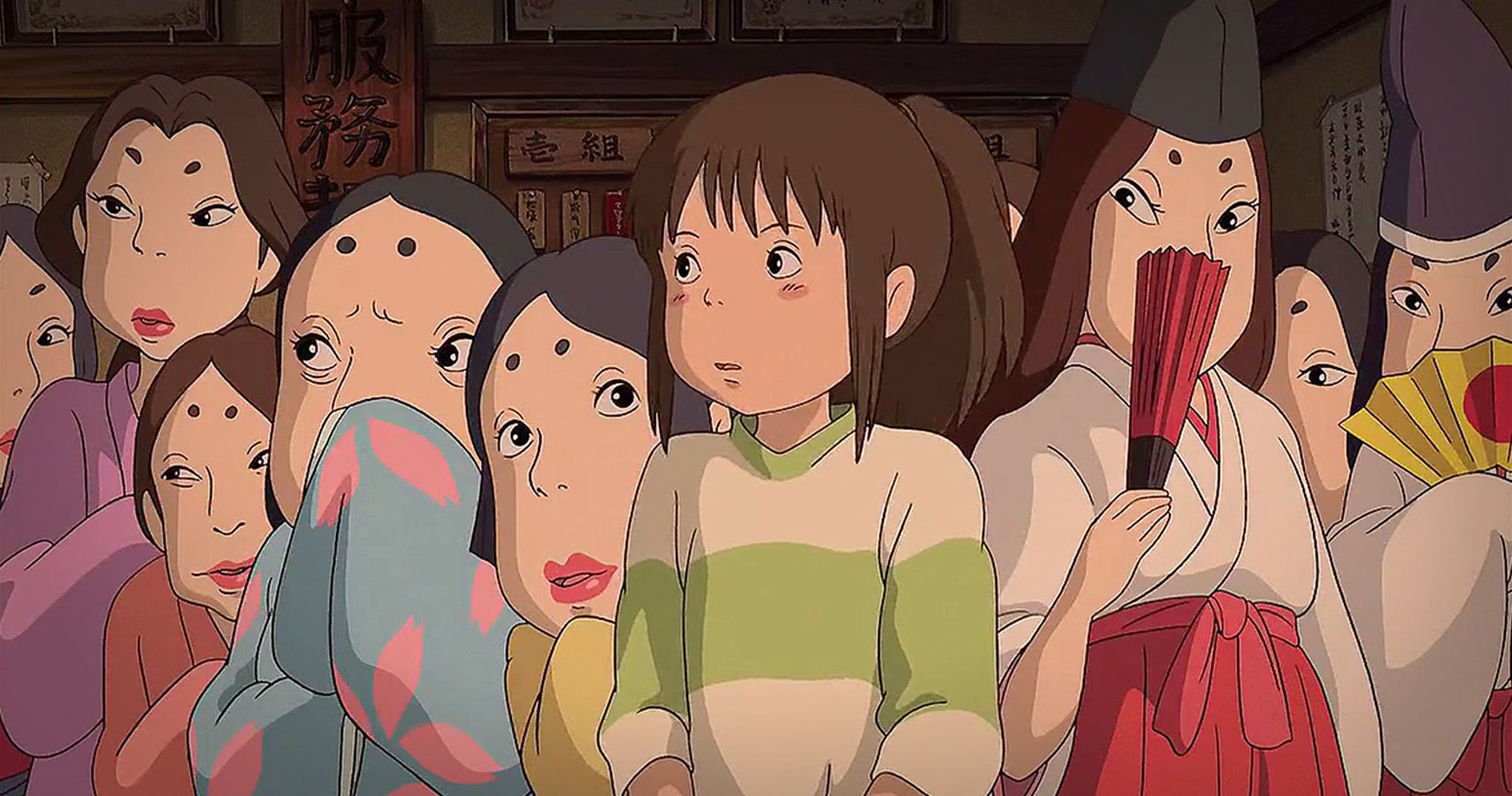An iconic Studio Ghibli film, Spirited Away enchanted viewers 20 years ago when it hit the silver screen with its exploration of a world of magic and wonder. The story follows 10-year-old Chihiro, who had just moved to a new town with her parents. On the way to their new home, the family takes a brief break from driving to explore a seemingly abandoned park, only to end up in some kind of spirit world where Chihiro’s parents are turned into pigs for helping themselves to some food. To set her parents free and return to their world, Chihiro is forced to work in a bathhouse owned by a terrifying entrepreneur known as Yubaba, exposing her to a different type of danger. Along the way, Chihiro makes new friends and allies as she works to survive in this other world.
Spirited Away explores many themes ranging from friendship, family, staying true to one's self and personal values. In fact, one major subplot of the film that dives deeply into all three is the grossly dehumanizing nature of corporate culture and its vile tendency to foster toxic work environments.
While corporate culture isn't the narrative's primary focus, the director of Spirited Away, Hayao Miyazaki, makes a strong, unapologetic argument against it all the same. With Yubaba's bathhouse business, Miyazaki explores three major hallmarks of corporate culture he feels characterize toxic workplaces: narcissistic leadership, disgruntled, demotivated employees and an obsession with profit at the expense of personal growth.
Yubaba Is The Narcissistic Boss of Spirited Away
One of the identifying markers of corporate culture that fosters a poor work environment is a toxic manager. Specifically, a manager with a narcissistic personality or narcissistic traits. These are the types of bosses who tend to have favorite employees (known as golden children) and workers they abuse in both overt and covert ways (known as scapegoats).
These managers are known to create power imbalances within their own teams, typically by love-bombing their favorites and gaslighting their scapegoats. They achieve these imbalances via triangulation wherein they essentially use employees as "third parties" for communicating with other employees they find troublesome. Yubaba -- Spirited Away's primary antagonist -- is this type of manager, with a name that literally translates to "hot water old hag" in Japanese.
Throughout Spirited Away, Yubaba possesses a lot of traits associated with Narcissistic Personality Disorder (NPD), a Cluster B disorder characterized by a grandiose sense of self-importance. Other symptoms include a strong desire for admiration, a lack of empathy, a tendency to react poorly to criticism and become angry when things don’t go their way. People with NPD are also known to take advantage of others, take credit for their contributions and fantasize about power and success.
One example of Yubaba's inflated sense of self-importance is the extravagant lifestyle she lives in the penthouse atop her bathhouse, while her employees are only given bare minimum living accommodations. As a business owner, she likes to project an image of power and success and especially craves the admiration of her clients. She most likely uses material wealth as compensation for her perceived shortcomings, which she also achieves at her employees' expense.
As an employer, Yubaba is shown to be extremely controlling, scolding people over a lack of decorum and exploding with anger at the slightest act of defiance. She is verbally, psychologically and emotionally abusive toward potential employees as well as her own. This is most notable when Chihiro asks Yubaba for a job in her bathhouse. Her response is to dismiss Chihiro as a weakling she has no use for, which also shows her lack of empathy. She further bullies Chihiro by calling her a "lazy, spoiled, stupid crybaby," which is highly unprofessional. Yubaba also disrespects personal boundaries when she touches Chihiro and literally breathes down her neck without her consent, which makes her very uncomfortable.
Spirited Away further reveals Yubaba’s lack of empathy by the dehumanizing way she treats her employees like property, having them sign away their names on her contracts. She literally steals their full identities by removing all but one kanji from their names and changes their name reading to the on'yomi (Chinese) reading. In Chihiro's case, both of the kanji in her name use the kun’yomi (Japanese) reading, meaning "great height." When her name is reduced to the sole kanji of "Chi" (kun'yomi) also read as "Sen" (on'yomi), she is reduced to the reading of "thousand," effectively reducing her to a number. As far as rankings go, reducing her name to ‘thousand’ effectively brings her down to rock bottom, an obvious contrast to her full name's meaning. This strongly illustrates how lowly Yubaba thinks of Chihiro.
When Chihiro starts working at the bathhouse, Yubaba continues the abuse by assigning her the most humiliating job she can offer: bathing a filthy river god who had been heavily polluted by human activity. When she originally mistakes the river god for a stink spirit, Yubaba's initial attitude toward it is disgust and she avoids all contact. Instead, she forces Chihiro to handle all the physical contact with the spirit and expose herself to filth. This delights Yubaba.
While initially a scapegoat, Yubaba begins to love-bomb Chihiro after her first job with the river spirit earns her a great fortune, succinctly illustrating her self-serving nature. When it comes to her other employees, Yubaba is shown to dispose of anyone she no longer finds useful. This is most notable with Haku, who starts out as her golden child before an injury renders him useless to her, so she seeks to get rid of him. Yubaba is similarly unfazed by three of her employees being nearly killed by No Face as she is far more concerned about the latter costing her a fortune.
Kamaji & Rin Are Spirited Away's Disgruntled, Demotivated Employees
The second major identifier of corporate culture that fosters a toxic work environment is disgruntled, demotivated employees, who tend to be overworked and often experience burnout. Another symptom is being distrustful of management and even other employees. This theme is best explored in Spirited Away with Kamaji, the boiler room manager, and Rin, one of the bathhouse's female employees. Both are shown to be irritable with a strong desire to leave their current situations. Between Kamaji and Rin, there is strong evidence that Yubaba runs an unreasonably tight ship, and very readily scapegoats any employees "who forget their place" or don’t follow her specific rules.
Kamaji even describes himself as a slave to the boiler room. His irritability comes from a place of being overworked as he responds to multiple orders at once and acts unfriendly toward anyone who bothers him while working. He treats his assistants (soot spirits) harshly, which is also symptomatic of his stress. Despite his irritation, however, he actually becomes protective of Chihiro, whom he passes off as his grandchild.
As an employee, Rin, also the more fleshed-out character, is equally irritable. She tenses up easily by changes that cause a ruckus inside the bathhouse. When Kamaji asks Rin to take Chihiro to Yubaba for employment, the request upsets her as she fears Yubaba’s response to Chihiro’s presence. When interacting with Chihiro, she is just as harsh as Kamaji and is easily angered over a lack of decorum and trivial matters. Rin's behavior in Spirited Away is reflective of both Yubaba's narcissism and her micromanagement style.
It's not until Chihiro proves herself resilient against Yubaba that Rin changes her attitude and becomes the young girl's greatest ally. This hints at two possible reasons for her inconsistent behavior: either Rin puts on a tough act during work hours to protect herself against abuse from Yubaba, or she was in fact genuinely scared of the consequences of being seen with Chihiro. In the latter case, she made herself look loyal to Yubaba the only way she knew would be acceptable, only lowering her guard around Chihiro when she felt it was safe to do so. Both are still indicative of the toxic work environment. When Rin gets a chance to be alone with Chihiro unsupervised, she shares her desire to escape her current situation and pursue a different life in the nearby town.
As a newly hired employee, Chihiro is similarly impacted by the bathhouse's toxic environment. It doesn’t take long for Yubaba’s abusive behavior and her overall experience in the bathhouse to traumatize Chihiro, who as a child, is already vulnerable to having her self-esteem destroyed. After her first day at work, Chihiro experiences a breakdown and begins shaking with fear. She even questions who she can really trust if allies like Haku behave inconsistently and isn't sure if she can trust her own judgment. Rin is similarly distrustful of Haku for his close relationship with Yubaba and attempts to comfort Chihiro.
Despite what the others think of Haku, his cold demeanor could also be an act to protect himself against Yubaba. Though he fulfills the role of being Yubaba's golden child in Spirited Away, it's quickly revealed she has control over him the same as her other employees. When she decides he's no longer useful, she quickly disposes of him and is left with no other allies except Chihiro herself. This indicates that while golden children don't suffer narcissistic abuse in the same way scapegoats do, they are still negatively impacted by the narcissist's behavior. In Haku's case, he was isolated from Yubaba's other employees and didn't have their support when he absolutely needed it.
Spirited Away's Bathhouse Is All Profit, No Personal Growth
The final red flag of corporate culture that also fosters a toxic work environment is being all profit and no personal growth. Yubaba is exactly this throughout Spirited Away as she has zero investment in her employees. For her, they are just a means to an end. But this mindset is present in the employees’ behavior as well, most notably when No Face poses as a wealthy customer.
As the quintessential narcissist, Yubaba always welcomes more gold into her pockets and her employees are equally obsessed with it. They have little to motivate them except avoiding Yubaba’s wrath and obsessively pursuing any opportunities to obtain personal wealth. This is the very weakness No Face exploits, effectively showcasing how working at Yubaba’s bathhouse has contributed to their own personal regression.
Not only are the employees willing to overwork themselves for profit, but they are even robotic in the way they comply with demands if they think it’ll earn more gold. At no point do any of them question No Face as a customer, nor do they limit the types of services they're willing to offer a single person. They just take advantage of Yubaba being asleep or away to help themselves.
This is the end result of Yubaba’s unethical business practices and abusive behavior. Her dehumanization is so thorough, her employees collectively don’t see themselves as individuals anymore (except a select few like Haku, Rin, Kamaji, and Chihiro) and have been reduced to nothing more than cogs in Yubaba’s larger machine. They all have one collective goal -- obtain more gold -- and zero individual personalities. It’s a truly tragic sight to see, but that is literally the point Miyazaki is making in Spirited Away's depiction of corporate culture.
While Miyazaki isn’t arguing that business is bad, he does make a strong point against an obsession with profit at the expense of human well-being. Not only does corporate culture facilitate harmful power imbalances and narcissistic abuse, but a combination of all those factors leads to the gradual death of one’s self-concept. By reducing people to nothing more than corporate robots, they are robbed of their own personal growth. This is the real harm of corporate culture.

